History
 The Rebbe
The RebbeThursday, June 10, 2010 by Yehudah Mirsky | Jewish Ideas Daily » Daily Features
The story of Lubavitcher Hasidism in our time is nothing short of astounding. Here is an ultra-Orthodox sect, deployed all over the world, exuberantly engaged with non-observant Jews and with non-Jews, availing itself of every imaginable form of contemporary communications technology. What was, for generations, the most intellectual and scholastic-minded hasidic dynasty—its other name, Chabad, is an acronym for "Wisdom, Understanding, Knowledge"—has become an ecstatic mass movement. At the heart of it all is the seventh and last Lubavitcher rebbe, Menachem Mendel Schneerson (1902–1994), who died childless—and whom some substantial number of his followers forthrightly regard as the messiah.
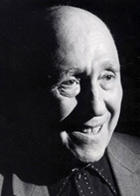 Chaim Grade’s Quarrel
Chaim Grade’s QuarrelFriday, June 4, 2010 | Jewish Ideas Daily » Daily Features
Mir vet men nit maspid zeyn... No one will eulogize me... The death several weeks ago of a reclusive, elderly widow in New York has raised hopes that, at long last, scholars and lovers of Yiddish will have access to the buried treasures in her apartment. These are the legacy—manuscripts, papers, works waiting for translation—of her husband, one of the greatest Jewish writers of modern times.
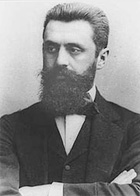 The Impresario of Zionism
The Impresario of ZionismWednesday, April 28, 2010 | Jewish Ideas Daily » Daily Features
Theodor Herzl, father of modern political Zionism, was born in Budapest 150 years ago next Sunday, May 2. He died at age forty-four in Vienna, four-and-a-half decades before the establishment of the state of Israel. Herzl came into maturity with no particular Jewish learning, no Hebrew, and scant ties to his community. Yet with his top hat, white gloves, and tails, this broadminded Central European journalist with a utopian streak came to be the foremost revolutionary of the modern Jewish world. The basics outlines of Herzl's life are fairly well known. Born into a comfortable, assimilated family, he considered law but settled...
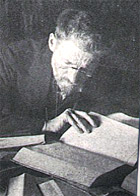 Speaking of Hebrew
Speaking of HebrewMonday, April 26, 2010 | Jewish Ideas Daily » Daily Features
Over time, successful social transformations lose their capacity to amaze. So it is that we forget just how astounding was the modern revival of Hebrew as a language suitable for all aspects of life. Of course, Hebrew never really died; throughout history it was the written language of scholarship and religious thought, and the spoken and sung language of prayer. This rich and multi-layered legacy was mined by the Zionist writers, linguists, and educators who over decades would painstakingly bring forth the modern Hebrew language. Among the questions they had to settle was how, exactly, to pronounce it. The decision was to...
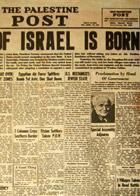 1948: Palestine Betrayed
1948: Palestine BetrayedTuesday, April 20, 2010 | Jewish Ideas Daily » Daily Features
Zionist Jews were not interlopers in Palestine. The creation of the Jewish state was not an "original sin" foisted upon the Arab world. The tragic flight of the Palestinian refugees was overwhelmingly not the fault of the Zionists. To the contrary, at every momentous junction the Zionists opted for compromise and peace, the Arabs for intransigence and belligerency. This, in summary, is how most people once understood the Arab-Israel conflict. Today, however, as Israel marks its Independence Day, an entire generation has come to maturity believing a diametrically opposite "narrative": namely, that the troubles persist because of West Bank settlements, because...
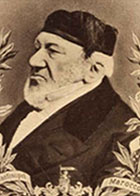 Sir Moses Montefiore
Sir Moses MontefioreFriday, April 16, 2010 | Jewish Ideas Daily » Daily Features
The name alone conjures up story-book images of a horse-drawn carriage from which a pious Victorian benefactor alights to bribe a local official, endow an orphanage, or dedicate a windmill. Abigail Green's brilliant new biography—elegantly conceived, exhaustively researched, crisply written—presents a far more complicated and fascinating picture. Montefiore was born in 1784 to a family embedded in the cosmopolitan network of merchant Jews linking London, Livorno, Amsterdam, and the New World: a Sephardi diaspora well-placed for the opportunities presented by the liberalizations of 19th-century Europe. Montefiore made deft use of the new dispensation, at first to make his fortune through his...
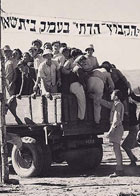 The Religious Kibbutz
The Religious KibbutzThursday, April 15, 2010 | Jewish Ideas Daily » Daily Features
Alongside the centennial of the kibbutz movement, another, humbler jubilee is being marked: the 80th anniversary of Ha-kibbutz Ha-dati, the religious-kibbutz movement. A unique blend of nationalism, socialism, and religion, it has generated a legacy whose significance reaches well beyond its sixteen member communes. The kibbutz movement as a whole was, from its inception, deeply committed to religion—that is, the Tolstoyan religion of labor. The religious kibbutzim strove to wed this new religion with the old one, and thus to remake both. The aim was a return to the land that would at once revitalize the ancient moral-religious energies of the Torah and issue a...
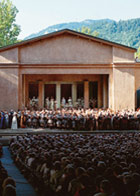 Easter
EasterThursday, April 1, 2010 | Jewish Ideas Daily » Daily Features
Around the world this weekend, Christians are preparing to celebrate Easter, the holiday marking the death and resurrection of Jesus and the culmination of the period of penitence that began with Ash Wednesday on February 17. The first bishops in Jerusalem were Jews, and so the early Christian community commemorated the Feast of the Resurrection on the fourteenth day of the Hebrew month of Nisan, coinciding with the Jewish festival of Passover. In Temple times, the essential rite of Passover was the slaughter of a paschal lamb; the Christian Bible explicitly tied this ritual with Rome's crucifixion of Jesus:...
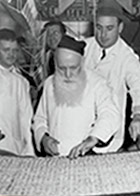 Thoroughly Modern Matzah
Thoroughly Modern MatzahThursday, March 25, 2010 | Jewish Ideas Daily » Daily Features
When Jews the world over sit down next week to mark the birth of Jewish history, matzah will figure prominently at the table. Matzah baking is an exacting task; according to traditional law, the entire process, from first kneading to exit from the oven, must be accomplished in 18 minutes flat, with not a speck of leaven in sight. For thousands of years, these specifications and others were laboriously met by hand. Yet this most ancient food has a modern history, too. The first matzah machine was invented in 1838 in France. With rabbinic approval, the technology moved steadily eastward. The...
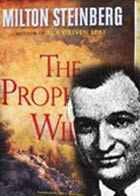 Milton Steinberg
Milton SteinbergA different sort of book launch took place yesterday at New York's Park Avenue Synagogue, a flagship of the Conservative movement. Being celebrated was the release of a long-lost novel left unfinished at the time of the author's death 60 years ago. The author was Milton Steinberg, who once served as the synagogue's rabbi and was among the most influential American Jews of the 20th century. Steinberg's early thought was molded by three teachers. At City College, the philosopher Morris Raphael Cohen imbued in him a commitment to philosophical rationalism. Rabbi Jacob Kohn taught him that the life of the...
Editors' Picks
After the Fall Amr Bargisi, Samuel Tadros, Tablet. In the eyes of two Egyptian thinkers, the Tahrir revolution was never democratic or liberal—and it was never in the interests of the middle class.
Getting Iran Wrong Alan Johnson, Jewish Chronicle. Why have intellectuals from Foucault to Žižek found it so very difficult to see dictatorships for what they are, or to summon up the moral clarity to oppose them?
Israel's Pulp Fiction Evan Lewis, Arizona State University News. Countercultural publishing thrived in Israel's first decades, with Westerns, espionage thrillers, science fiction, and what might be seen as the country's first literary responses to the Holocaust.
The Arab Spring and the Islamic State Ed Husain, New York Times. In the recent uprisings, the burning of American or Israeli flags was not a central display; the protesters focused on internal, national problems. That's how they must continue.
EastEnders Stephen Burstin, Jewish Week. London's East End was once a hub of immigrant Jewish life, with a soup kitchen that served 5,000 meals a day, a Yiddish theater, countless synagogues, Petticoat Lane Market, and . . . Jacob the Ripper?
The Riddle of the Mufti Norman Goda, H-Net. Haj Amin al-Husseini threw a long shadow as a precursor to the Arab and Muslim factions whose brand of anti-Semitism borrows much from the Western traditions that they otherwise despise.
Marriage and Morals Shlomo Brody, Jerusalem Post. While the Torah explicitly commands Jews to procreate, it never definitively demands marriage. That being the case, does Jewish law ever permit extramarital sex?
Open House Yitzhak Benhorin, Ynet. Rahm Emanuel is now mayor of Chicago, Dan Shapiro turned down the position of Middle East desk chief, and Dennis Ross has resigned. Is there anyone left in the White House who understands Israel?
The Mentalist Larry Getlen, New York Post. While Erik Jan Hanussen could hypnotize women into "the throes of orgasm" and use handwriting to discern intimate details of a person's life, his greatest trick was luring the Nazis into a deep, dependent alliance with a Jew.
The Progressive Case for Israel David Hirsh, Engage. There are reasons to be ambivalent about nationalism. But Israel now exists in the material world, so to treat it merely as an idea or as a political movement makes it possible to think of eliminating it too.

